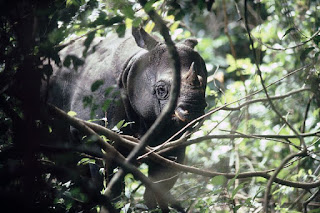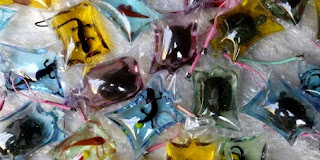Should We Be Concerned If A Species Goes Extinct?
The simple answer is, yes. It does matter if even just one species goes extinct and we should be concerned because animals and plants depend on each other, be it for food or to disperse seeds.
So if one species ceases to exist, whether predator or prey, can affect others within the complex food web. One single extinction of one species can have a global effect on local ecosystems and economies and even international markets.
The food web, also known as a food chain, is a series of relationships that occur in an ecosystem between predator and prey. A predator may also be the prey of another animal.
A species usually goes extinct when it is unable to adapt to the changes in its environment, such as the introduction of new predators, human interference, changes in climate, a disease or the availability of food resources.
Predators are most often the first animal to be threatened due to hunting or competition for resources. When predators go extinct, this means their prey will no longer feel the pressure of predation.
A trophic cascade occurs when the predators in a food web goes extinct. It is an ecological phenomenon that indirectly impacts populations of prey, causing dramatic changes and alterations in the food web and therefore the ecosystem.
The trophic cascade effect had been witnessed in certain parts of Africa where lion and leopard populations have decreased. This decline has caused olive baboons to change their behaviour patterns and there have been increased contact with nearby people. This has led to a rise in intestinal parasites in both the baboons and people.
Clemson University conservation biologist Dr. Robert Baldwin stated that, “If there are too many deer, for example, they can really change the ecosystem because they can destroy forests, and they also carry disease.”
However, predators are not the only ones who can affect the food chain. The loss of organisms that provide food for a wide variety of animals will also have an impact on the food web.
For example, in the 19th century the harelip sucker fish’s main diet is snails. When waste and other debris polluted rivers where the fish and snail lived, the snail population declined. This probably caused the fish to go extinct without their main source of food.
Relationships within a food web can be so detailed and complicated that a slight change in the ecosystem can cause a disruptive reaction.
Polar bears, for example, their main diet are seals. And seals rely on Arctic cods for food. The cod eats zooplankton, and the zooplankton eats ice algae. However, global warming have been causing sea ice to melt. When the ice melts, the ice algae will decline. This will create a chain effect that eventually reduces the polar bear populations.
Marine animals are also affected if something in the ecosystem changes. For example, if water temperatures rise, corals will not be able to survive and their numbers will decrease. Marine life forms dependent on these corals to live will also suffer, which will lead to disruptions in the food web for other marine creatures living in the ocean.
Plants also rely on animals to help disperse their seeds and ensure their survival. Some groups of birds such as fruit doves are vital for the long-distance distribution of plants from one location to the next. On the other hand, large, flightless birds as well as lizards and tortoises are important for scattering the seeds around the same location or island.
When the populations of these animals decline or go extinct, plants, and trees in particular, will be at a disadvantage as they are deprived of the crucial element needed for relocating their seeds to new areas. Thus they too, will face extinction.
Losing even a small amount of animals, enough to cause a dramatic decline in their populations, in the web of life contributes to the impact the ecosystems will face in a number of ways.



Sad to see some of the wonderful species disappear totally from this world....
ReplyDeleteAs always, a very informative and enlightening post. I was aware that everything was connected and thus we can't afford to lose an even seemingly "minor" species, but I appreciate all your concrete details. My hometown has a truck that drives down the streets each night and spays poison in the air to kill mosquitos. Once when I was little, my mom said she didn't like what they were doing and I asked her why anyone would need mosquitos. She explained that certain birds eat the mosquitos, and if there were no mosquitos, those birds could become extinct. Then it all made sense.
ReplyDeleteIts so sad to hear this. Thank for letting us know .
ReplyDeleteI'm actually going to do a little booklet about recent extinct species. This post revived this idea. It's so sad though that we've occupied so much of the world and pushed many organisms out into frenzy.
ReplyDeleteThat's an interesting idea! I wish you all the best with it (:
DeleteUnfortunately we are loosing more and more species, its just so sad to see.
ReplyDeleteThis is very important. In my country we are trying to keep rhinos alive. They are being murdered for their horns. this is also why i'm a sponsor with World Animal Protection. Let's keep our species alive
ReplyDeleteI completely agree. We should definitely be concerned for the extinction of species...all of them!
ReplyDeleteOh yeah, as humans, we must be the utmost concerned for many reasons.
ReplyDeleteFor one, it won't be long before these same species turn "on to us" and devour us, right?
Agreed!
ReplyDeletewe should care for them as i feel we all at the end of the day are inter-dependent on each other.
thanks for this informative article dear ..!!
Yap I agree. We should stand up and speak for those who can't speak for themselves. Very good point of view
ReplyDeleteGood to raise this awareness! Thank you for the info and effort :)
ReplyDeleteThank you for this post! It is so important to keep the awareness in the public eye.
ReplyDeleteYes we should be concerned, we want our children to experience nature in all its wonders!
ReplyDeleteReally amazed to see that only one single extinction can have such a great effect. We should take total responsibilities and become voice for the voiceless like you
ReplyDelete